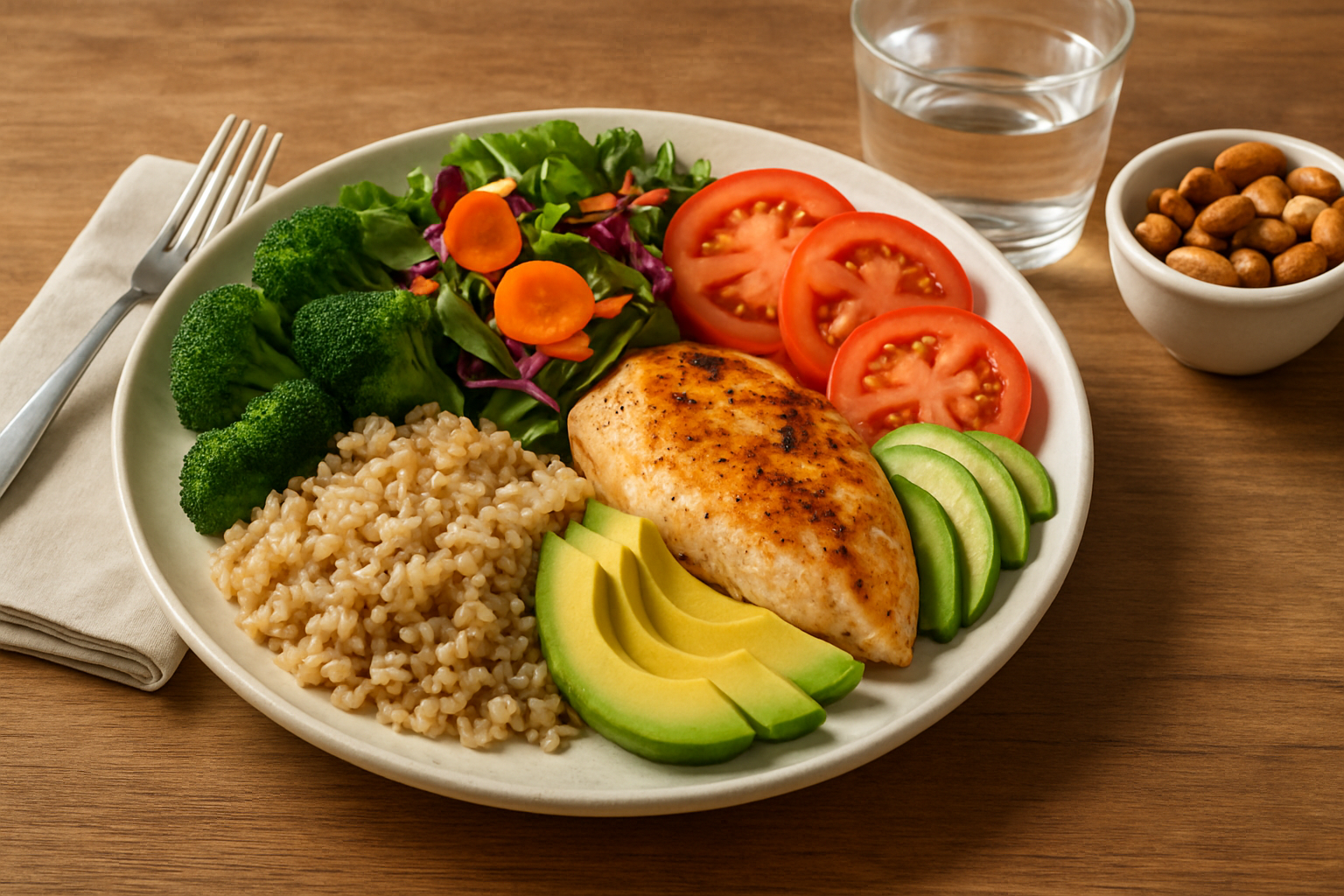Eating well is not about strict dietary limitations, staying unrealistically thin, or depriving yourself of the foods you love. Instead, it’s about feeling great, having more energy, improving your health, and stabilizing your mood. A balanced diet is the foundation of long-term well-being, and learning how to build one can transform your daily life.
Understanding What a Balanced Diet Really Means
A balanced diet provides your body with the nutrients it needs to function correctly. It includes:
- A variety of fruits and vegetables
- Whole grains
- Lean proteins
- Healthy fats
- Adequate hydration
- Limited added sugars and sodium
It’s not about eliminating entire food groups or labeling foods as “good” or “bad.” It’s about creating a way of eating that supports your physical and emotional health.
Why Is a Balanced Diet Important?
The benefits of a balanced diet go far beyond weight management. Here are some of the key advantages:
- Increased energy levels
- Stronger immune system
- Better mental focus
- Improved sleep quality
- Reduced risk of chronic diseases like diabetes, heart disease, and high blood pressure
- Better mood regulation
When your body receives the right fuel, it functions more efficiently, allowing you to feel your best.
The Core Components of a Balanced Meal
A balanced meal typically includes:
🥦 Vegetables and Fruits (Half Your Plate)
They’re rich in vitamins, minerals, fiber, and antioxidants. Aim for color and variety. Dark leafy greens, bright red peppers, sweet potatoes, and fresh berries are excellent choices.
🍚 Whole Grains (A Quarter of Your Plate)
Whole grains are a key source of fiber and nutrients. Choose brown rice, quinoa, oats, or whole wheat bread instead of refined grains.
🍗 Lean Protein (A Quarter of Your Plate)
Protein supports muscle repair, immune function, and hormone production. Great sources include:
- Chicken or turkey breast
- Eggs
- Fish
- Legumes (lentils, beans, chickpeas)
- Tofu or tempeh
🥑 Healthy Fats (Small Amount)
Fats are essential for hormone production and brain health. Include:
- Olive oil
- Nuts and seeds
- Avocados
- Fatty fish like salmon
💧 Water
Don’t forget to hydrate! Water is crucial for digestion, circulation, and overall cellular function.
How to Start Eating a Balanced Diet Today
Getting started doesn’t mean a full pantry overhaul overnight. Try these manageable steps:
1. Start With One Meal
Pick one meal—like lunch—and focus on balancing that first. Once it becomes routine, move on to the others.
2. Add More Color
Each grocery trip, choose two new vegetables or fruits to try. The more color in your meals, the more variety of nutrients you’ll get.
3. Read Labels
Many packaged foods have hidden sugars, sodium, or unhealthy fats. Learn to scan ingredient lists for better choices.
4. Meal Prep When You Can
Preparing food in advance saves time, money, and helps you stay on track. You can cook grains in batches, pre-cut veggies, and portion out snacks.
5. Avoid Skipping Meals
Eating regularly supports your metabolism and helps you avoid overeating later in the day.
Balanced Diets Are Not About Perfection
One of the biggest misconceptions about eating well is that it needs to be perfect all the time. The 80/20 rule is a helpful way to think about it: aim to eat nourishing foods 80% of the time and allow yourself the flexibility to enjoy treats or less structured meals 20% of the time.
Common Mistakes to Avoid
When transitioning to a healthier diet, it’s easy to fall into a few traps. Here’s what to look out for:
- Relying too much on “diet” or low-fat products – They often replace fat with sugar or artificial ingredients
- Skipping meals in the name of “health” – This can backfire by leading to cravings and low energy
- Forgetting to enjoy your food – Eating should also be satisfying and emotionally enjoyable
Tips for Maintaining a Balanced Diet Long-Term
- Cook at home more often
- Use herbs and spices instead of salt
- Listen to your body’s hunger and fullness signals
- Don’t eat distracted (like in front of a screen)
- Create a grocery list and stick to it
- Keep healthy snacks on hand (nuts, fruit, hummus, yogurt)
Making Peace With Food
Eating well should not be a source of stress. Instead, view food as something that supports your energy, health, and happiness. Allow yourself flexibility, be patient with the process, and remember: small changes can lead to lasting results.
Nourishing Your Life, One Meal at a Time
Building a balanced diet is one of the most powerful tools you have to enhance your well-being. It’s not about perfection but consistency. Start small, stay curious, and remember that healthy eating is a journey, not a destination.
